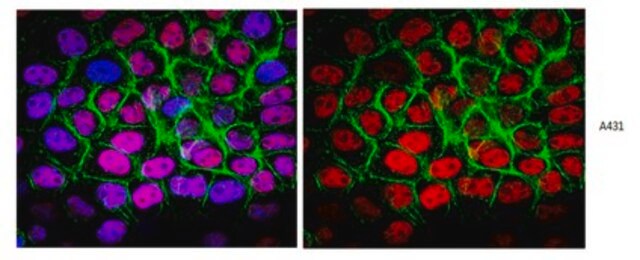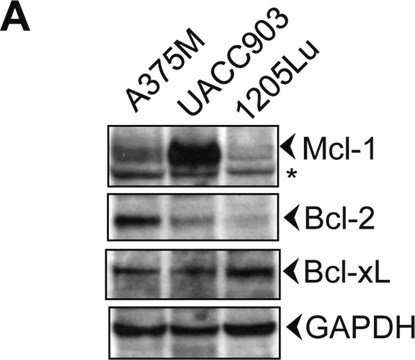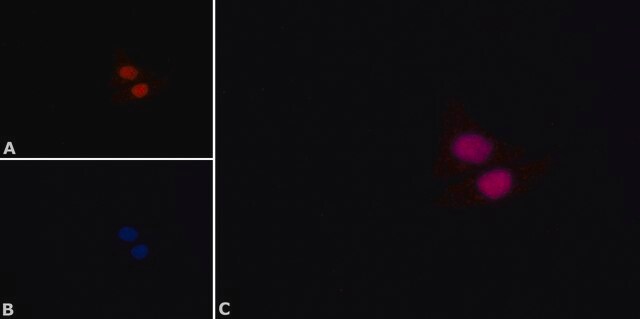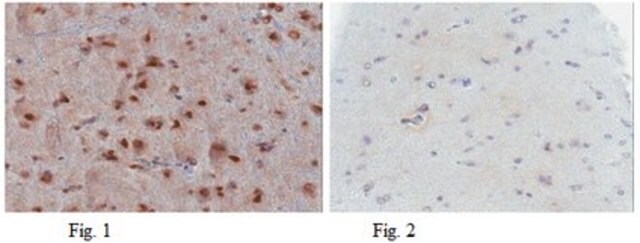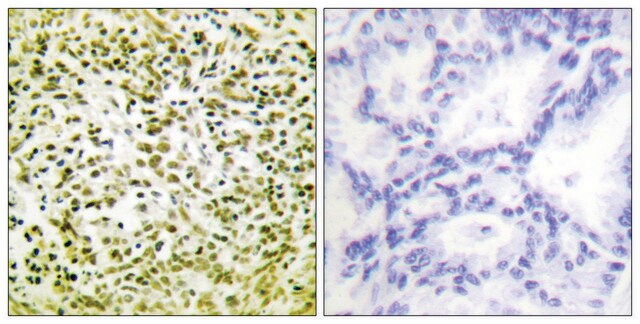P6874
Anti-p53 antibody, Mouse monoclonal
clone DO-1, purified from hybridoma cell culture
Synonym(s):
Anti-BCC7, Anti-BMFS5, Anti-LFS1, Anti-P53, Anti-TRP53
About This Item
Recommended Products
biological source
mouse
Quality Level
conjugate
unconjugated
antibody form
purified immunoglobulin
antibody product type
primary antibodies
clone
DO-1, monoclonal
form
buffered aqueous solution
mol wt
antigen ~53 kDa
species reactivity
human
concentration
~2 mg/mL
technique(s)
flow cytometry: suitable
immunocytochemistry: suitable
immunohistochemistry: suitable
immunoprecipitation (IP): suitable
indirect ELISA: suitable
microarray: suitable
western blot: 0.2-0.4 μg/mL using total cell extract of A431 cells
isotype
IgG2a
UniProt accession no.
shipped in
dry ice
storage temp.
−20°C
target post-translational modification
unmodified
Gene Information
human ... TP53(7157)
Looking for similar products? Visit Product Comparison Guide
General description
Specificity
Immunogen
Application
- semi-dry western blotting
- immunoblotting
- immunofluorescence
- enzyme-linked immunosorbent assay (ELISA)
- immunocytochemistry
- immunohistochemistry
- immunoprecipitation
- flow cytometry
- chromatin immunoprecipitation (ChIP) assay
Biochem/physiol Actions
Physical form
Disclaimer
Not finding the right product?
Try our Product Selector Tool.
recommended
related product
Storage Class Code
10 - Combustible liquids
WGK
WGK 3
Flash Point(F)
Not applicable
Flash Point(C)
Not applicable
Personal Protective Equipment
Choose from one of the most recent versions:
Already Own This Product?
Find documentation for the products that you have recently purchased in the Document Library.
Customers Also Viewed
Articles
p53 regulates gene expression, cell cycle control and functions as a tumor suppressor. Inactivation of p53 is closely tied to cancer development.
Cancer stem cell media, spheroid plates and cancer stem cell markers to culture and characterize CSC populations.
Our team of scientists has experience in all areas of research including Life Science, Material Science, Chemical Synthesis, Chromatography, Analytical and many others.
Contact Technical Service



